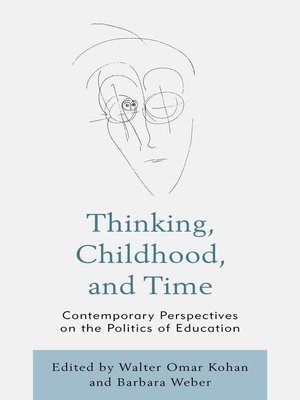Thinking, Childhood, and Time
ebook ∣ Contemporary Perspectives on the Politics of Education · Philosophy of Childhood
By Walter Omar Kohan

Sign up to save your library
With an OverDrive account, you can save your favorite libraries for at-a-glance information about availability. Find out more about OverDrive accounts.
Find this title in Libby, the library reading app by OverDrive.



Search for a digital library with this title
Title found at these libraries:
| Loading... |
Thinking, Childhood, and Time: Contemporary Perspectives on the Politics of Education is an interdisciplinary exploration of the notion of childhood and its place in a philosophical education. Contributors consider children's experiences of time, space, embodiment, and thinking. By acknowledging Hannah Arendt's notion that every child brings a new beginning into the world, they address the question of how educators can be more responsive to the Otherness that childhood offers, while assuming that most educational models follow either a chronological model of child development or view children as human beings that are lacking.
The contributors explore childhood as a philosophical concept in children, adults, and even beyond human beings—Childhood as a (forgotten) dimension of the world. Contributors also argue that a pedagogy that does not aim for an "exodus of childhood," but rather responds to the arrival of a new human being responsibly (dialogically), fosters a deeper appreciation of the newness that children bring in order to sensitize us for our own Childhood as adults as well and allow us to welcome other forms of childhood in the world. As a whole, this book argues that the experience of natality, such as the beginning of life, is not chronologically determined, but rather can occur more than once in a human life and beyond. Scholars of philosophy, education, psychology, and childhood studies will find this book particularly useful.






